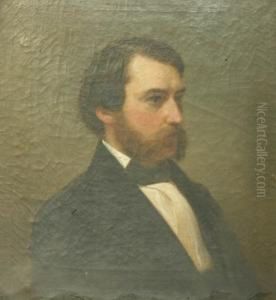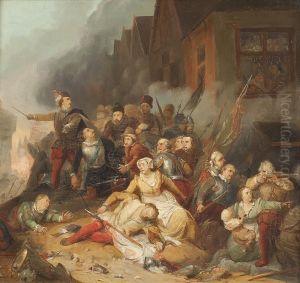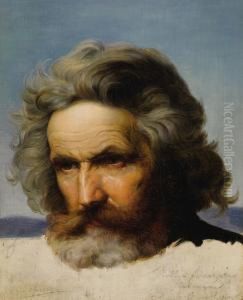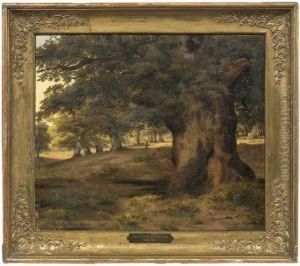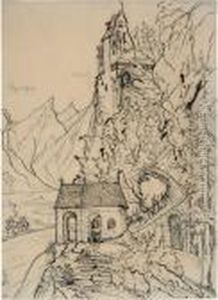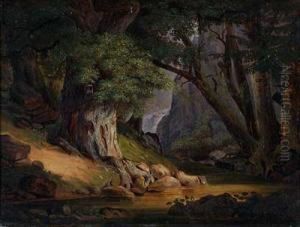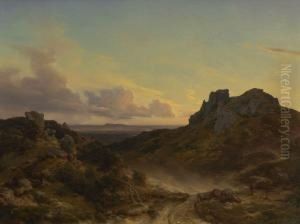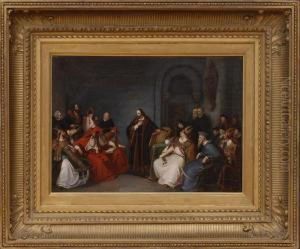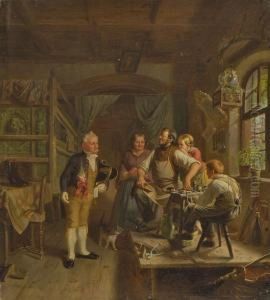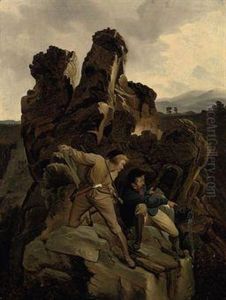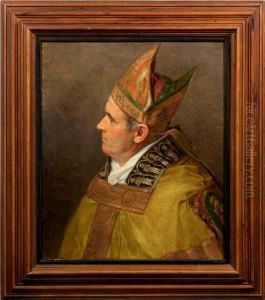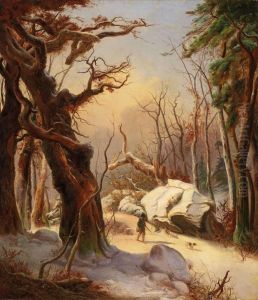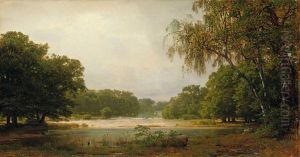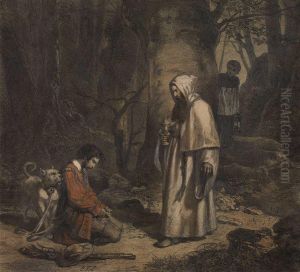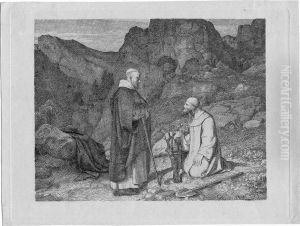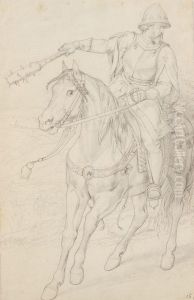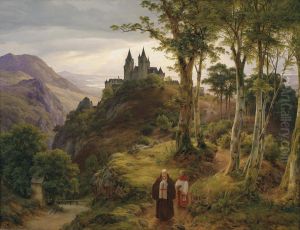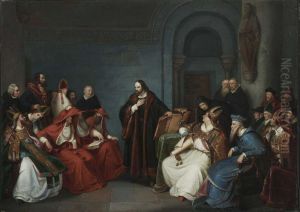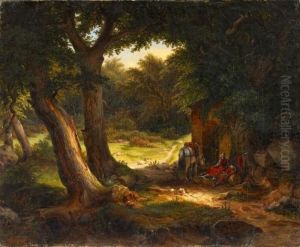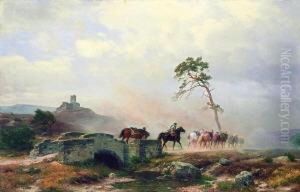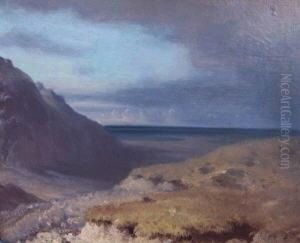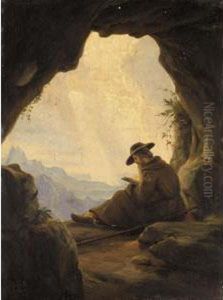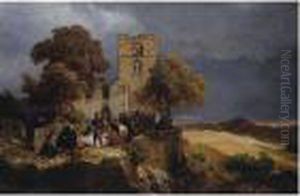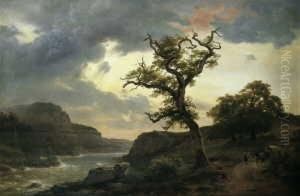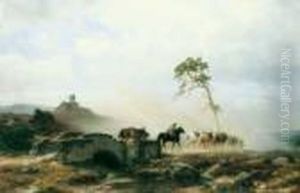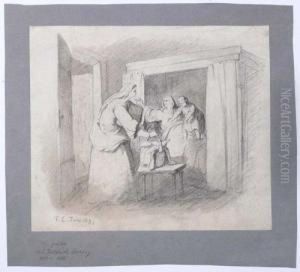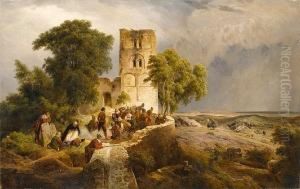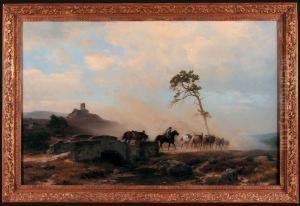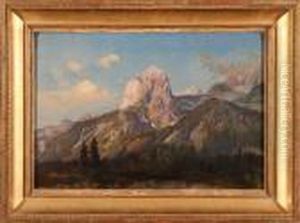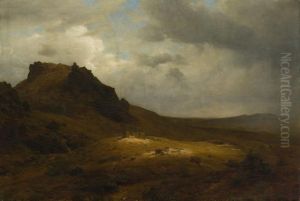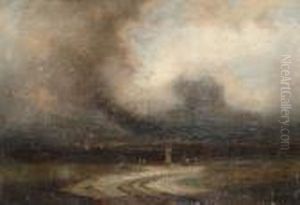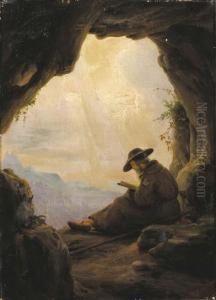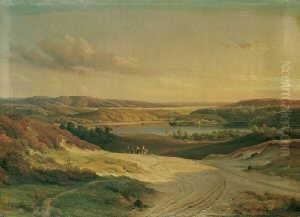Carl Friedrich Lessing Paintings
Carl Friedrich Lessing was a German artist and a prominent member of the Düsseldorf school of painting, which became influential in the 19th century. Born on February 15, 1808, in Breslau, Prussia (now Wrocław, Poland), Lessing displayed an early interest in art, which was supported by his family.
Lessing initially trained under his uncle, landscape painter Johann Friedrich Lessing. He later moved to Düsseldorf in 1826 to study at the Düsseldorf Academy of Arts under the tutelage of Wilhelm von Schadow, who was a key figure in the Düsseldorf school. Lessing quickly became associated with the movement, which was known for its emphasis on detailed historical and religious scenes, often with a strong emotional component.
Throughout the 1830s and 1840s, Lessing made a name for himself with dramatic history paintings. One of his most famous works is 'Hussite Sermon' (1836), illustrating a scene from the Hussite wars and reflecting themes of religious struggle and liberation, which resonated with contemporary audiences. His romantic approach to landscape and historical scenes earned him considerable acclaim.
In 1837, Lessing was appointed a professor at the Düsseldorf Academy, and he influenced many young artists who would go on to become significant figures in German art. His teaching and his own artworks contributed to the romantic nationalist movement in Germany, which sought to evoke the country's medieval past and the spirit of its folklore and legends.
Later in his career, Lessing served as the director of the Grand Ducal Art School in Karlsruhe from 1858 until his retirement in 1880. During this period, he continued to paint and also engaged in conservation work, helping to preserve historical monuments in the region.
Carl Friedrich Lessing's impact on the German art scene was profound. His historical paintings, characterized by their attention to detail and romantic sensibility, were influential in shaping the course of German Romanticism. He passed away on June 5, 1880, in Karlsruhe, Germany, leaving behind a legacy that would continue to inspire future generations.
